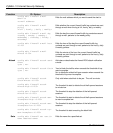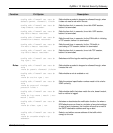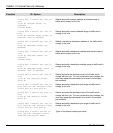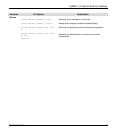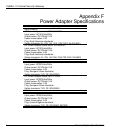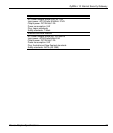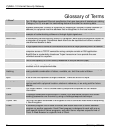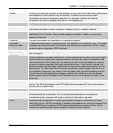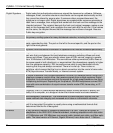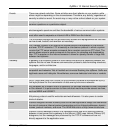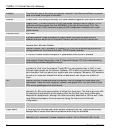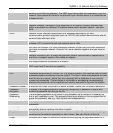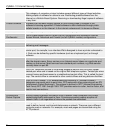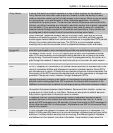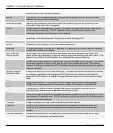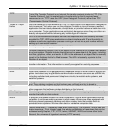
ZyWALL 10 Internet Security Gateway
P Glossary of Terms
Digital Signature Digital code that authenticates whomever signed the document or software. Software,
messages, Email, and other electronic documents can be signed electronically so that
they cannot be altered by anyone else. If someone alters a signed document, the
signature is no longer valid. Digital signatures are created when someone generates a
hash from a message, then encrypts and sends both the hash and the message to the
intended recipient. The recipient decrypts the hash and original message, makes a new
hash on the message itself, and compares the new hash with the old one. If the hashes
are the same, the recipient knows that the message has not been changed. Also see
Public-key encryption.
DNS Domain Name System. A database of domain names and their IP addresses. DNS is
the primary naming system for many distributed networks, including the Internet.
Domain Name
The unique name that identifies an Internet site. Domain Names always have 2 or more
parts, separated by dots. The part on the left is the most specific, and the part on the
right is the most general.
DRAM
Dynamic RAM that stores information in capacitors that must be refreshed periodically.
DSL
Digital Subscriber Line technologies enhances the data capacity of the existing twisted-
pair wire that runs between the local telephone company switching offices and most
homes and offices. There are actually seven types of DSL service, ranging in speeds
from 16 Kbits/sec to 52 Mbits/sec. The services are either symmetrical (traffic flows at
the same speed in both directions), or asymmetrical (the downstream capacity is higher
than the upstream capacity). DSL connections are point-to-point dedicated circuits,
meaning that they are always connected. There is no dial-up. There is also no
switching, which means that the line is a direct connection into the carrier’s frame relay,
ATM (Asynchronous Transfer Mode), or Internet-connect system.
DSLAM
A Digital Subscriber Line Access Multiplexer (DSLAM) is a network device, usually at a
telephone company central office, that receives signals from multiple customer Digital
Subscriber Line connections and puts the signals on a high-speed backbone line using
multiplexing techniques. Depending on the product, DSLAM multiplexers connect DSL
lines with some combination of asynchronous transfer mode ATM, frame relay, or IP
networks.
DTE
Originally, the DTE (data terminal equipment) meant a dumb terminal or printer, but
today it is a computer, or a bridge or router that interconnects local area networks.
EMI
ElectroMagnetic Interference. The interference by electromagnetic signals that can
cause reduced data integrity and increased error rates on transmission channels.
Encryption The act of substituting numbers and characters in a file so that the file is unreadable
until it is decrypted. Encryption is usually done using a mathematical formula that
determines how the file is decrypted.
Ethernet
A very common method of networking computers in a LAN. There are a number of
adaptations to the IEEE 802.3 Ethernet standard, including adaptations with data rates
of 10 Mbits/sec and 100 Mbits/sec over coaxial cable, twisted-pair cable, and fiber-optic
cable. The latest version of Ethernet, Gigabit Ethernet, has a data rate of 1 Gbit/sec.



